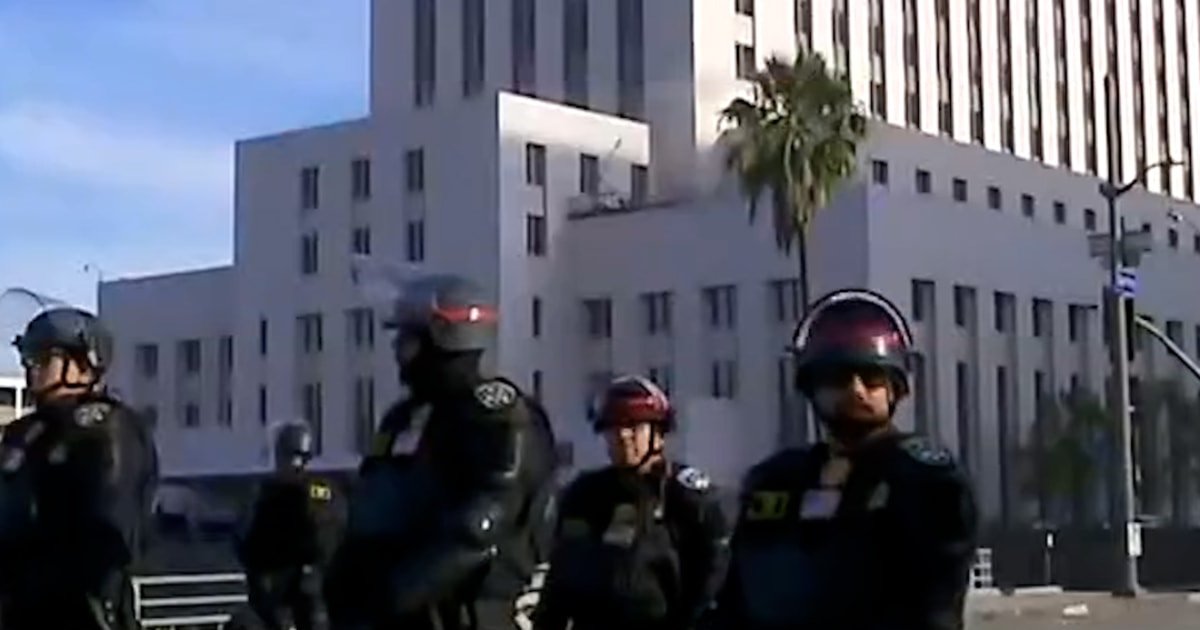SEOUL, South Korea – The black boxes from the Jeju Air plane that crashed in South Korea on Sunday are in the spotlight as a joint team of U.S. and South Korean investigators works to determine the cause of the deadliest aviation disaster of 2024. .
The data from the two black boxes, the flight data recorder and the cockpit voice recorder, will be essential to determine what happened in the minutes before the forced landing of the Boeing 737-800 at Muan International Airport, in the southwest of the country, killing 179 of the 181 passengers and crew members on board.
Authorities said Wednesday that they had finished formally identifying the 179 victims overnight and that 11 bodies had been returned to their families, allowing funerals to begin.
“Today is New Year’s Day, a day meant to be spent with family, which makes the pain even greater,” Choi Sang-mok, South Korea’s acting president, said in a New Year’s speech.
“I offer my prayers for the souls of the victims and extend my deepest condolences once again to the grieving families who have lost their loved ones.”
Choi took over as acting president on Friday, two days before the accident, after his predecessor, Han Duck-soo, was impeached by lawmakers just two weeks after taking office. South Korea is in a state of political turmoil after a failed attempt to declare martial law last month by President Yoon Suk Yeol, who is awaiting trial after also being indicted.
Choi said that “a thorough analysis of the aircraft, black box data and other factors will ultimately reveal the cause” of the crash, which authorities said may have involved a strike with a bird, a problem with the deployment landing gear or problems with other controls. systems.
South Korean investigators are converting data extracted from the cockpit voice recorder into audio files, the Transportation Ministry said Wednesday, a process that could take about two days.
Although rescuers quickly recovered the two black boxes, the flight data recorder was damaged and investigators were unable to recover its nationwide data, the ministry said. Therefore, it will be sent to the United States for analysis.
The U.S. team in South Korea includes representatives from the Federal Aviation Administration and the National Transportation Safety Board, as well as Boeing, the plane’s manufacturer, and CFM International, the engine manufacturer.
On Wednesday, grieving families visited the crash site and held a memorial ceremony.
Jeju Air CEO Kim E-Bae said Tuesday that the airline would cover the cost of the funerals and was preparing “emergency financial assistance as a gesture of solidarity and sympathy.”
Kim also said the airline was cutting its winter operations by up to 15% through March as it prioritizes “operational safety.”
“We will improve pre- and post-flight inspections and weather monitoring and pay close attention to the emotional well-being of aviation personnel,” he said.
Jeju Air Flight 2216 took off from Bangkok shortly after 2 a.m. local time on Sunday (2 p.m. Saturday ET), with 181 people on board, including six crew members.
While attempting to land in Muan without landing gear, the plane burst into flames after crashing into an embankment at the end of the runway. All but two cabin crew members, who were in the tail of the plane, died.
It is still unclear why the pilots did not lower the landing gear.
Stella Kim reported from Seoul, South Korea and Mithil Aggarwal reported from Hong Kong.







